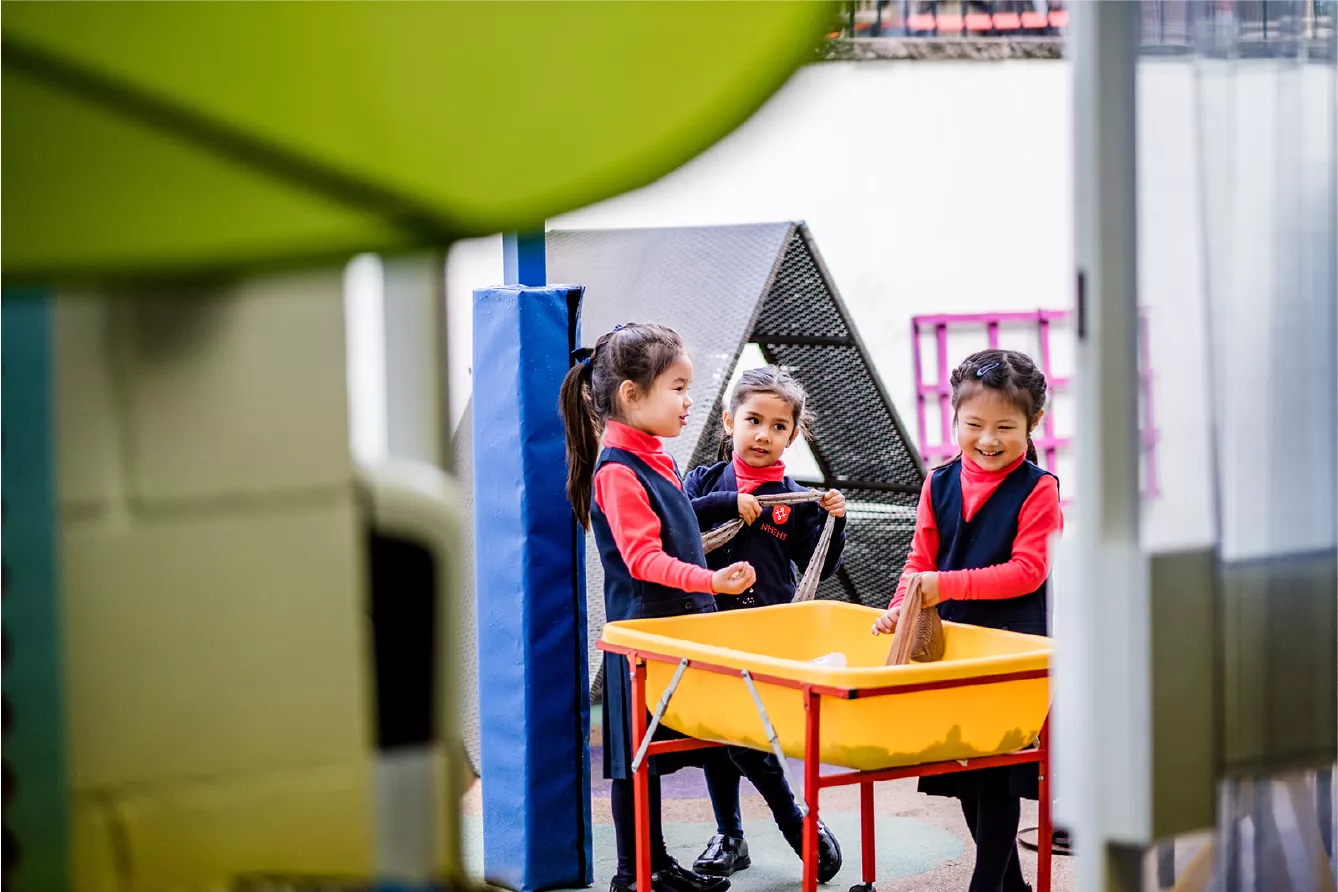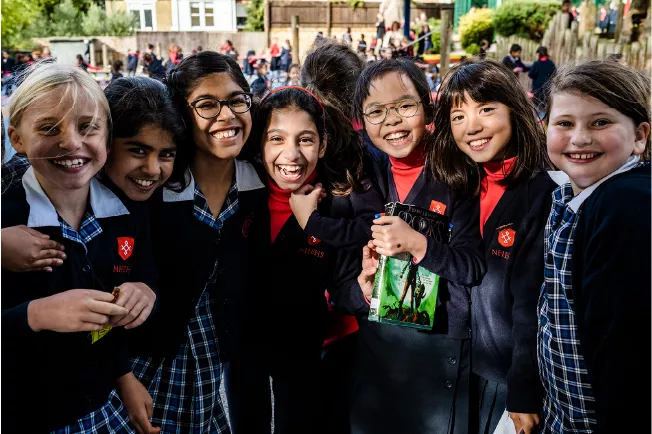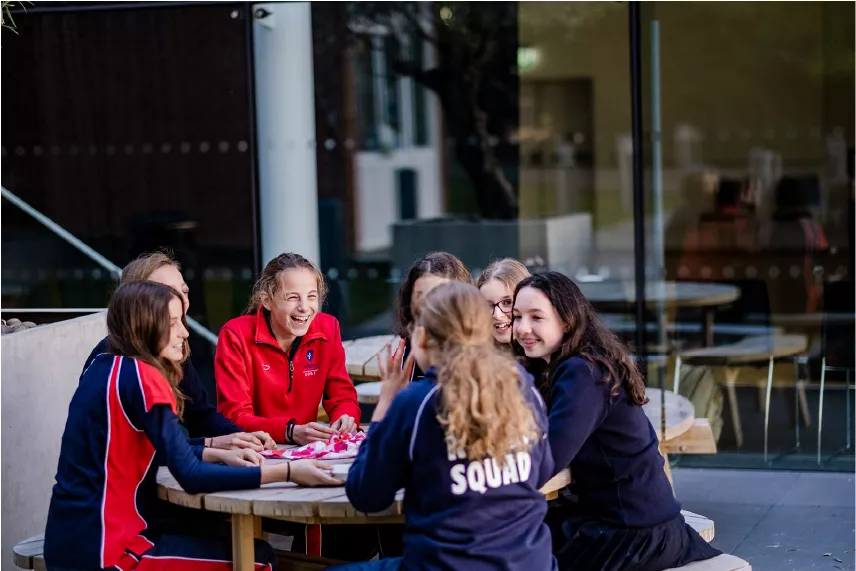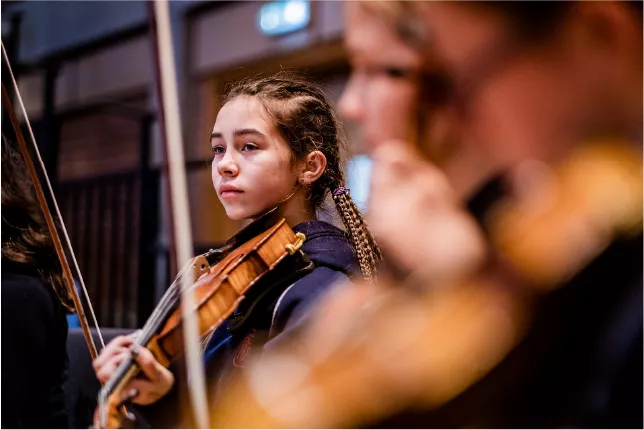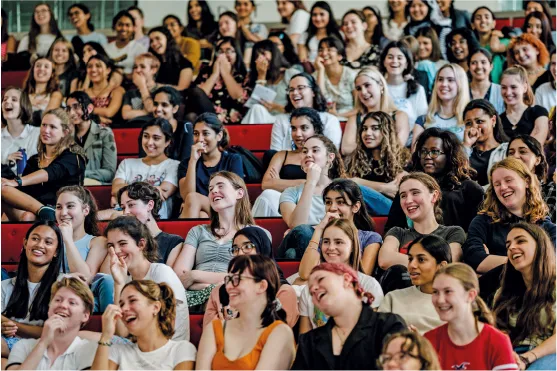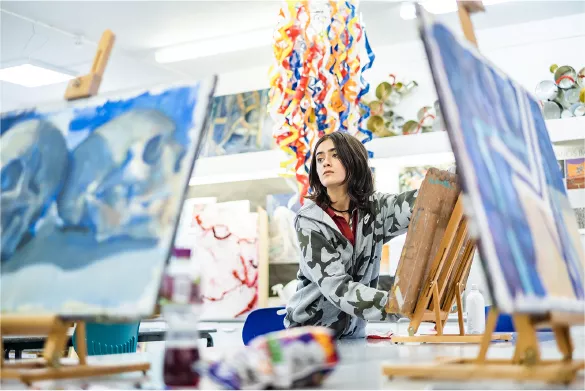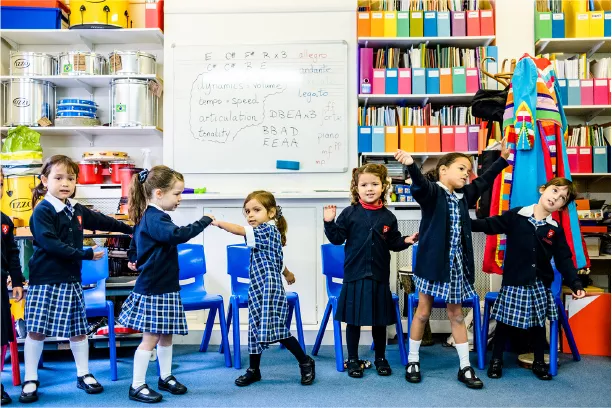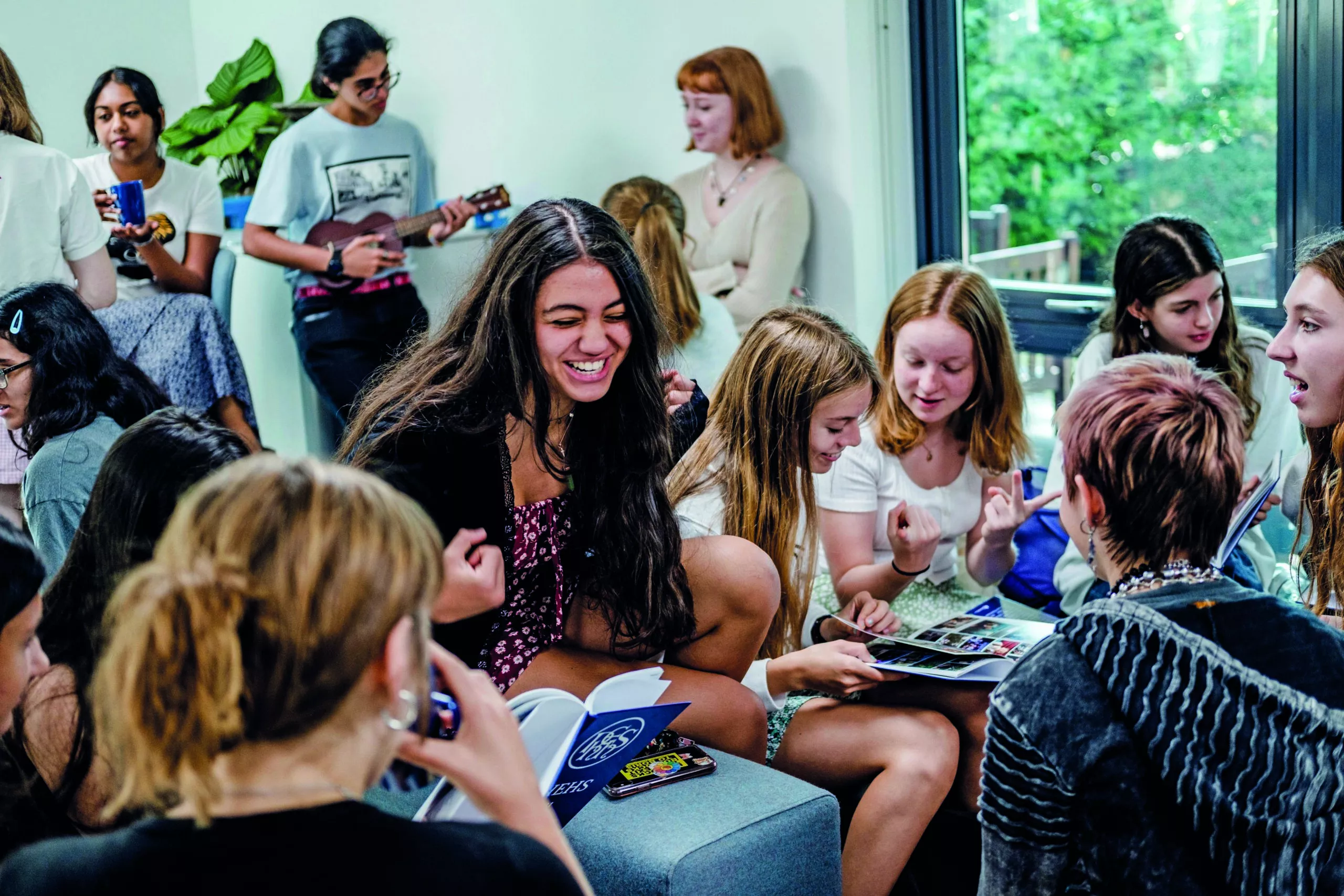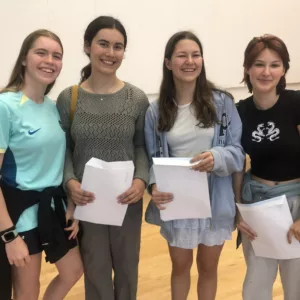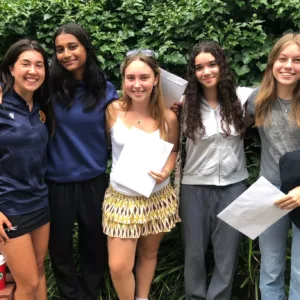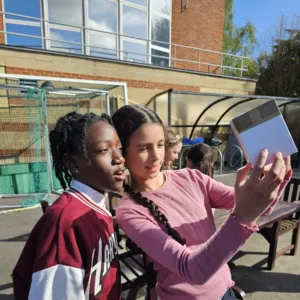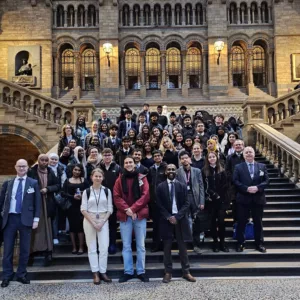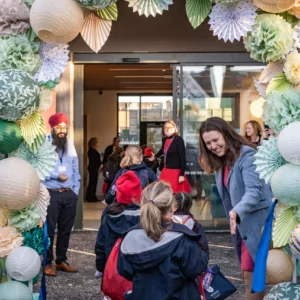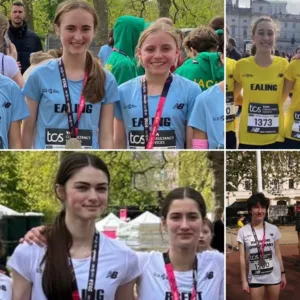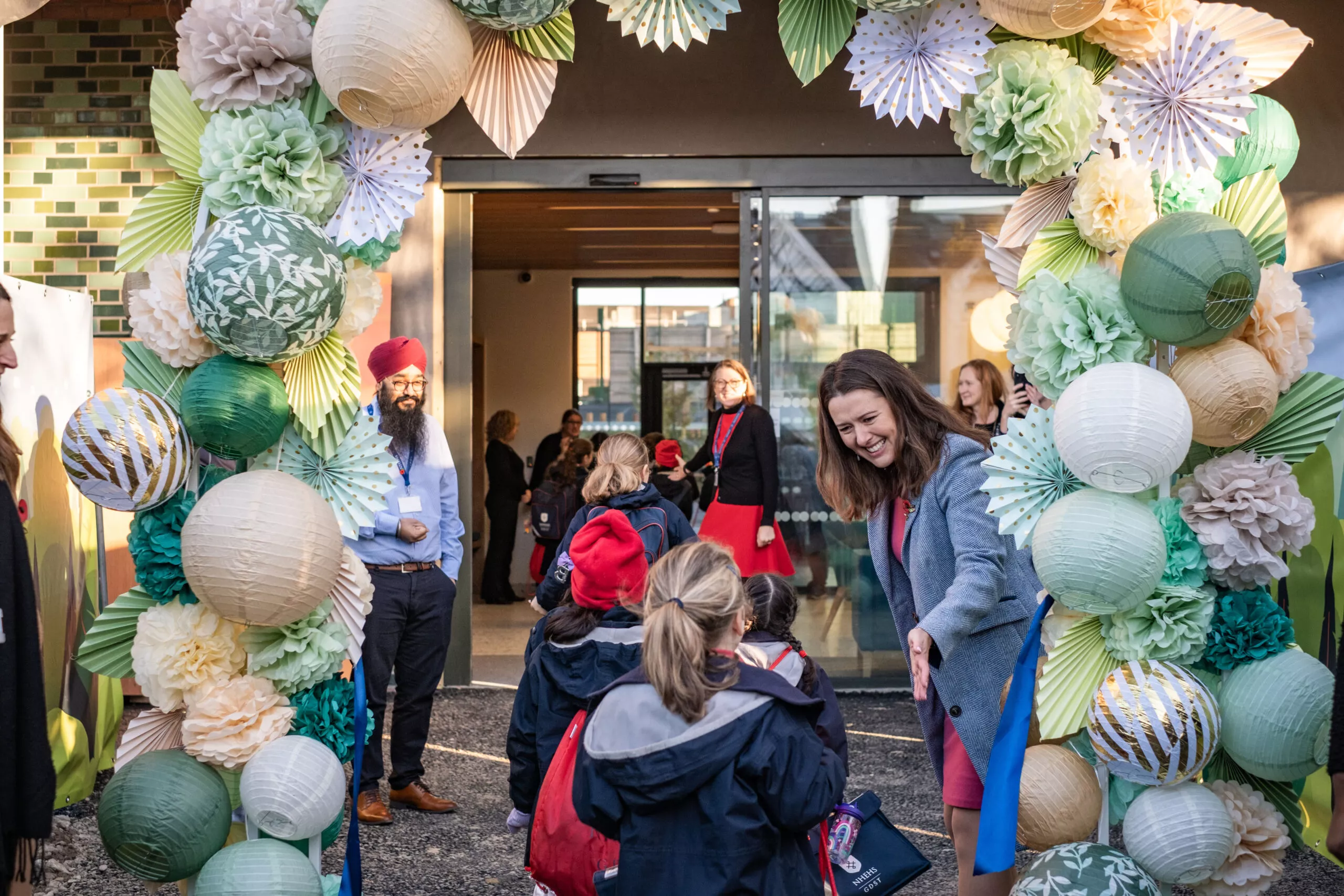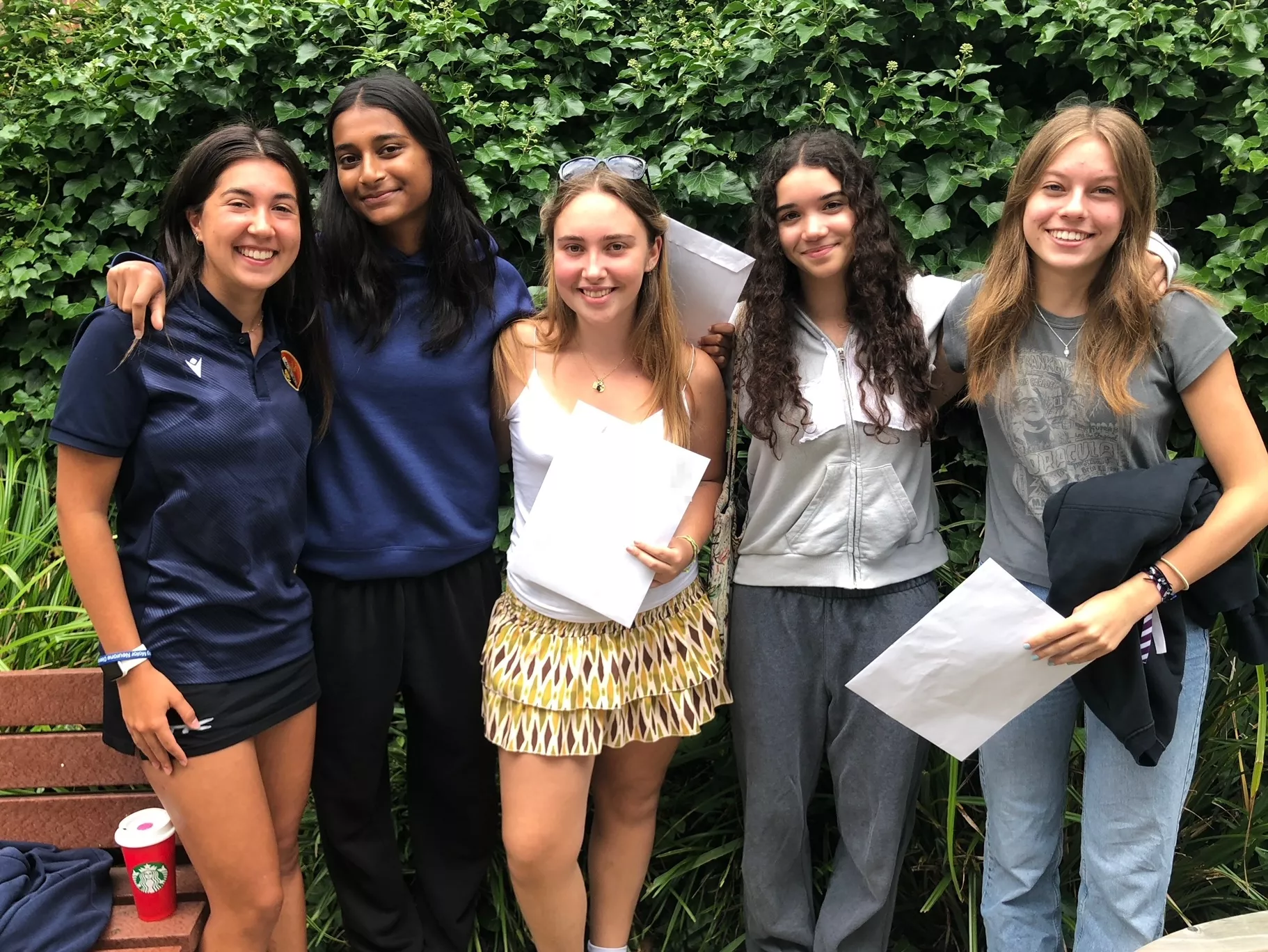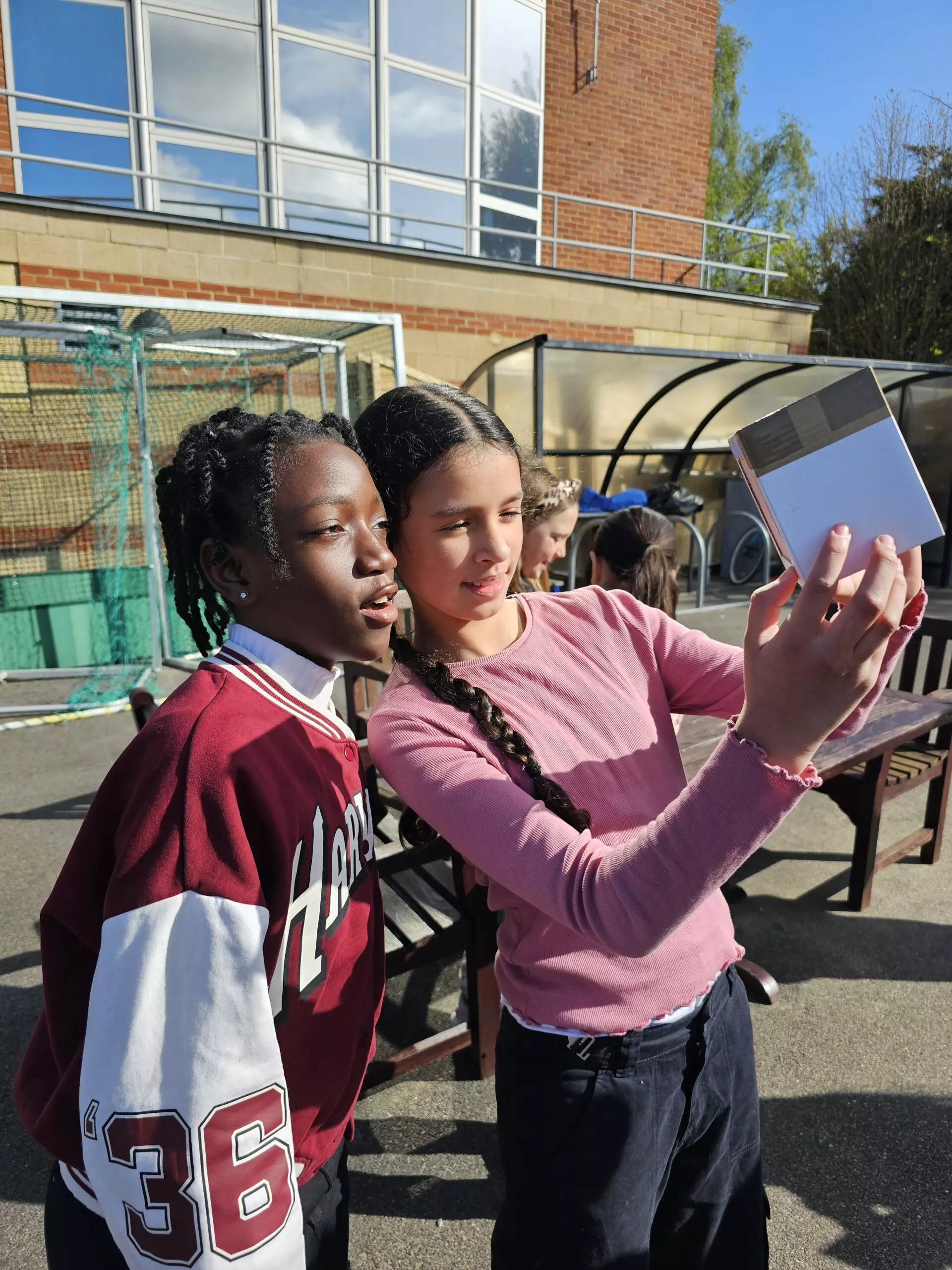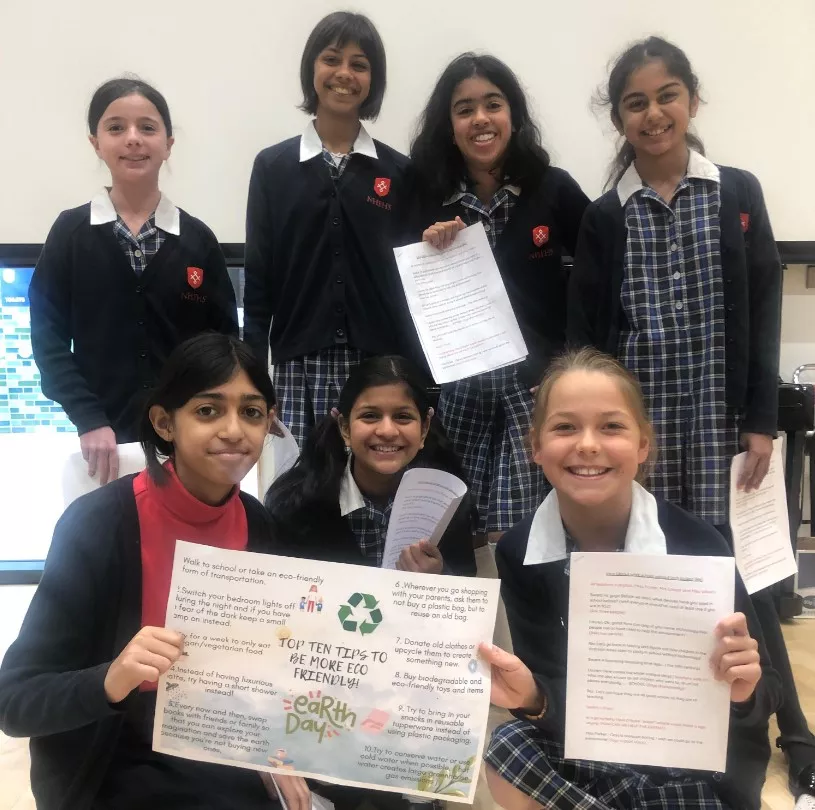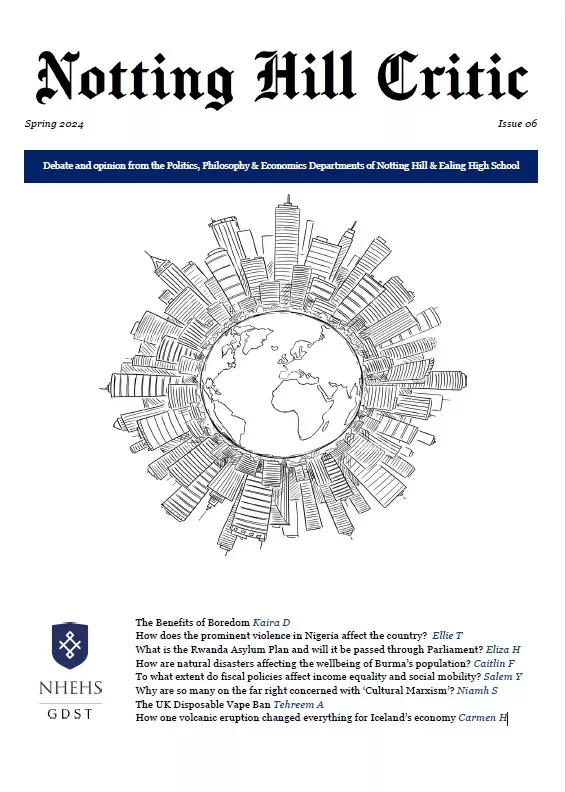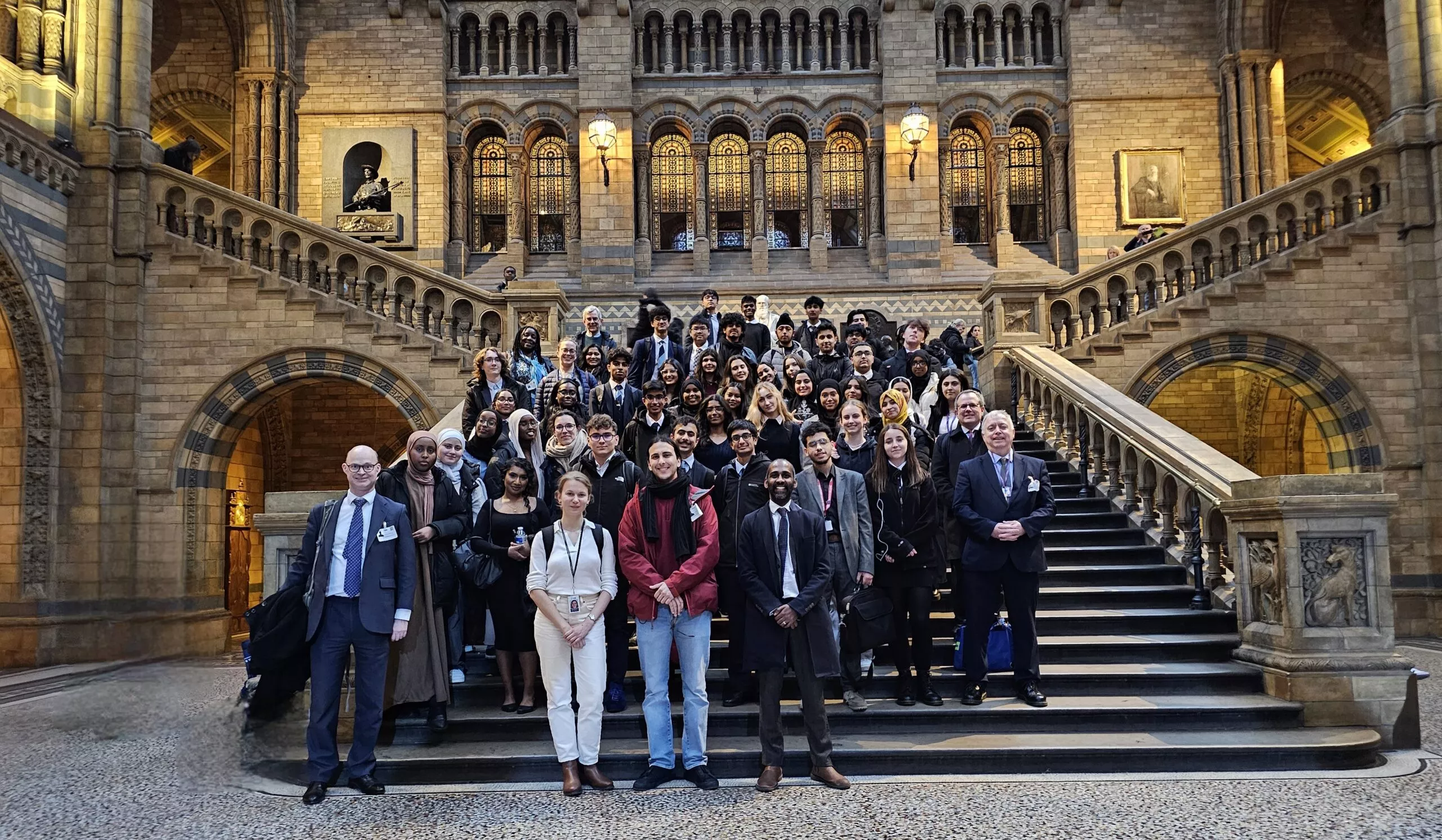Inaya Represents NHEHS at GDST Chrystall Prize Public Speaking Final
On Friday February 28th, five talented students from all over the GDST competed at Portsmouth High School in the final of the GDST Chrystall Prize, a public speaking competition for Year 11 pupils from across the Trust.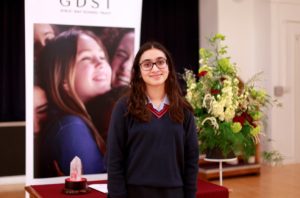
Inaya, representing NHEHS, and the other finalists had already battled their way through heats to get to the final, including Inaya winning the regional round at Norwich High School in January.
The challenge was to talk for up to seven minutes on their chosen topic without visual aids, hold the audience’s attention, engage their interest and then take three minutes of questions from the audience.
The five finalists did not shy away from tackling tricky and even controversial issues.
First up was our very own Inaya, with an intriguing discussion of memory and identity (see below for her full speech), followed by Cordelia from Sheffield High School speaking on “There is no such thing as evil.” The next speaker was Rosie from Wimbledon High School who tackled the topic of fake news, while Sarena representing Croydon High School offered a speech on racism and fear. The afternoon of excellent speeches was rounded off by Eleanor from Oxford High School, who spoke about climate change.
The panel of judges, Anjana Gadgil, BBC Television Presenter, BBC South Today; Lucy Foley, best-selling novelist and Cheryl Giovannoni, Chief Executive of the GDST had the difficult task of choosing a winner. They were impressed with the quality of the arguments and praised the speakers for knowledgeable, engaging and eloquent speeches. Of Inaya’s speech, they commented “excellent job on an intriguing topic, with great content. Her style was accessible and eloquent. Inaya had great eye contact and used the space really well.” The winner’s prize and trophy were awarded to Sarena from Croydon High School for her speech on ‘The fear of racial other is inherent in every nation. We should be embracing otherness rather than attempting to eliminate it.’
Congratulations to the winner Sarena and all the finalists for an inspiring afternoon of public speaking!
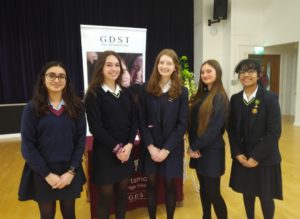 Inaya’s Speech: Is memory the most important part of identity?
Inaya’s Speech: Is memory the most important part of identity?
Hello everyone, thank you for coming. Who are you? Who am I? I’m not expecting you to know, we’ve only just met! Now would seem like a good time to introduce myself.
I am Inaya and I will be discussing whether memory is the most important part of identity.
Is memory the most important part of identity? This is certainly a very powerful philosophical question, which has been in discussion for centuries.
But first, what do I mean by “memory” and “identity”?
“Memories” seem easier to define – they are the recollection of stored information that we have previously received; for example the thrill of going on your favourite roller coaster in thorpe park.
And by our “identity”, I am referring to our mental selves as opposed to our physical bodies or brains, the essential quality which makes me ‘me’.
Determining the factors that define our identity was first seriously considered in the 17th century by John Locke, a British philosopher whose ‘memory theory’ suggested that a person’s identity only reaches as far as their memory extends into the past. Without memory, there is no way to interpret events and relate them yourself; in essence, you can’t develop a sense of self.
Memories from past experiences provide us with a sense of identity. We will remember our days in nursery, learning how to establish friendships and the difference between right and wrong. I believe that every memory contributes something, major or minor, to our identity. For example, I may forget my homework one day and get detention even at GDST school, it can happen! As a result of that embarrassing memory, I become more reluctant to forget my homework in the future, and so become just slightly more of an organised person. So, as you can see, memory helps young people make better choices in the future by remembering previous mistakes and using them to correct future behaviour. During development the parts of the brain that interpret experiences and the parts that create memory all communicate so that a seamless stream of experiences and memories are constantly being formed. The result is a young person that learns from mistakes and overcomes shame or guilt by remembering positive choices made and positive parts of themselves, shaping the person they are.
Although we share some memories with others, we have different identities. It is our unique selection of memories and the perspective in which they come from which gives us our individuality.
But it is clear that identity exists beyond merely memory—if one single memory was suddenly erased from my mind, it seems intuitive that I would not be a different person. Furthermore, the problem becomes logically impossible in the following scenario: a lawyer remembers her school days and therefore has the same identity as her school-child-self; however when she becomes elderly she no longer remembers her school days, although she remembers her time as a lawyer, thus having the same identity as the lawyer, but not as the school-child. This creates the three logically incompatible propositions:
The school-child and lawyer are one person,
The lawyer and elderly lady are one person,
The school-child and elderly lady are different persons.
This is impossible!
Paul Helm, another British Philosopher suggested that Locke’s memory theory could be modified to suggest that memory allows us to have continuity of consciousness and identity, and it is the continuity of consciousness that allows the school child to have the same identity as the lawyer and elderly lady.
In the 18th Century, David Hulme tried to find the ‘self’ lurking behind all his experiences, what made him ‘him’. But he couldn’t. All he could discover was a succession of fleeting experiences and perceptions – the happiness of being cuddled by your mother, the pain on cutting your finger, the joy of eating chocolate, dancing to your favourite song, all joined together by memories.
Sometimes, the process of memory is disrupted. As we know, adolescence is a time of upheaval on the brain and conditions like trauma, neglect, and grief can cause a disruption in memory, resulting in low self-worth or the inability to form or sustain relationships. Young people with these problems tend to move through life simply existing and reacting to events without being able to relate them to themselves. As a result, the child does not develop a sense of self, greatly affecting how they, let alone others, view themselves.
So, if all your memories faded away, would you lose your identity? A recent scientific study from the USA suggests that losing your memory does not equate to losing your identity, because it is your moral behaviour, not memories, which define who we are. A research group studied people suffering from 3 different types of disease: amyotrophic lateral sclerosis / ALS which affects movement, Alzheimers which affects memory and IQ and frontotemporal dementia which affects moral traits such as honesty, compassion and integrity. The patient’s family members were asked questions like “Does this patient feel like a stranger to you?”. Interestingly, family members thought that those who had a disruption in their moral traits, so those suffering from frontotemporal dementia had the largest change in perception of identity. But I want you to ask yourself the question – do your early memories serve as your moral compass anyway?
I think it is important to remember that our past mistakes do not define us, but allow us to learn and change our future.
There are many other theories on identity, but they all suggest that our memories are very important for our identity, even if we are unable to define the exact nature of our identity itself.
After some consideration, I came to the conclusion that memories are in fact the most important part of our identity, and that is because I believe that past events and experiences are what shape us into the people we are today.
Thank you.
Back to news
